The social media landscape continues to evolve rapidly, with new platforms emerging and established giants innovating to stay ahead. Whether you want to connect with friends, share your passions, or grow your business, these top 10 social media apps and sites offer the best features, user experiences, and opportunities to engage in the digital world. Let’s dive into what makes these platforms the leaders of the social media sphere in 2025.
What is the Most Popular Social Media App?
As of 2024, Facebook remains the most popular social media platform worldwide, with over 3.07 billion monthly active users. Its vast user base and diverse demographic make it a top choice for personal connections and business marketing. Other leading platforms include YouTube (2.7 billion users), WhatsApp (2.4 billion users), Instagram (2.35 billion users), and TikTok (1.67 billion users), which continues to grow rapidly, especially among younger generations.
Top 10 Popular Social Media Apps & Sites in 2025
Whether you want to stay in touch, discover trends, or grow your business, there’s a social media app. Here, we explore the top 10 social media apps list shaping online interaction.
1. Facebook
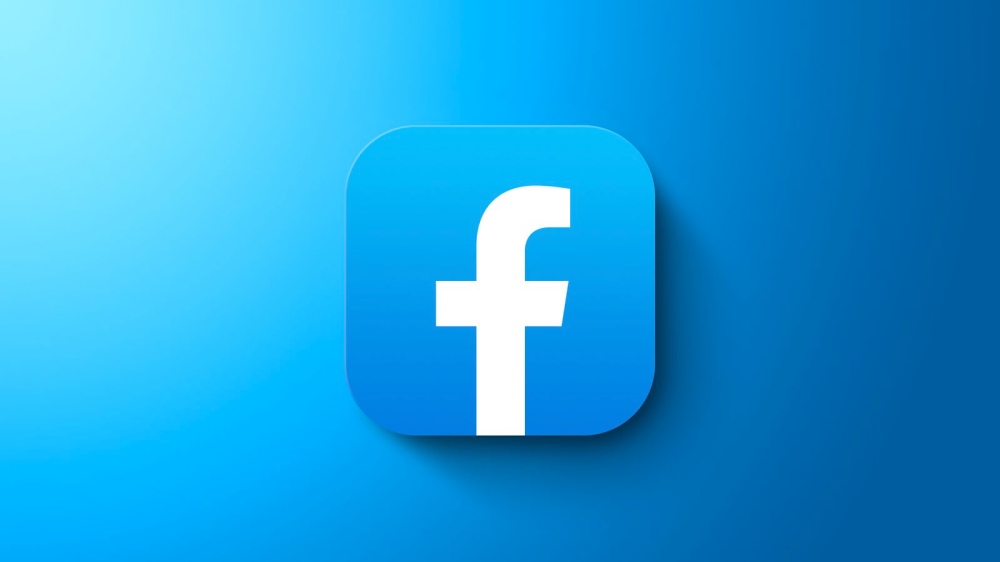
Facebook, launched in 2004, has grown into a multifaceted social media platform with over 2.8 billion monthly active users. It offers a wide range of features, including personal profiles, news feeds, groups, events, and a Marketplace for buying and selling. Facebook’s integration of messaging through Messenger and video content through Facebook Watch makes it a comprehensive platform for social interaction, business marketing, and community building.
Pros:
- Large user base
- Comprehensive features
- Strong community-building tools
Cons:
- Privacy concerns
- Ad-heavy interface
- Complex Algorithms Affecting Content Visibility
2. Instagram
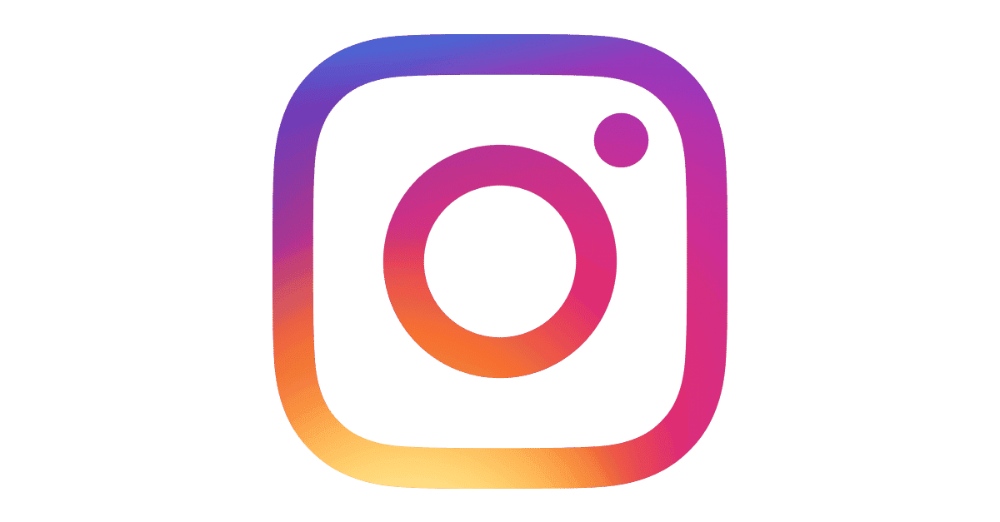
Instagram, owned by Facebook, is a visual-centric platform with over 1 billion users. It’s popular for photo and video sharing, enhanced by features like Stories, Reels, and IGTV. Instagram is widely used by influencers, brands, and individuals to build personal and professional profiles. Its seamless integration with Facebook and robust e-commerce tools make it an essential platform for digital marketing and visual storytelling.
Pros:
- High engagement rates
- Effective for visual storytelling
- Strong e-commerce integrations
Cons:
- Algorithm changes can affect visibility
- High competition for attention
- Can be addictive
3. TikTok
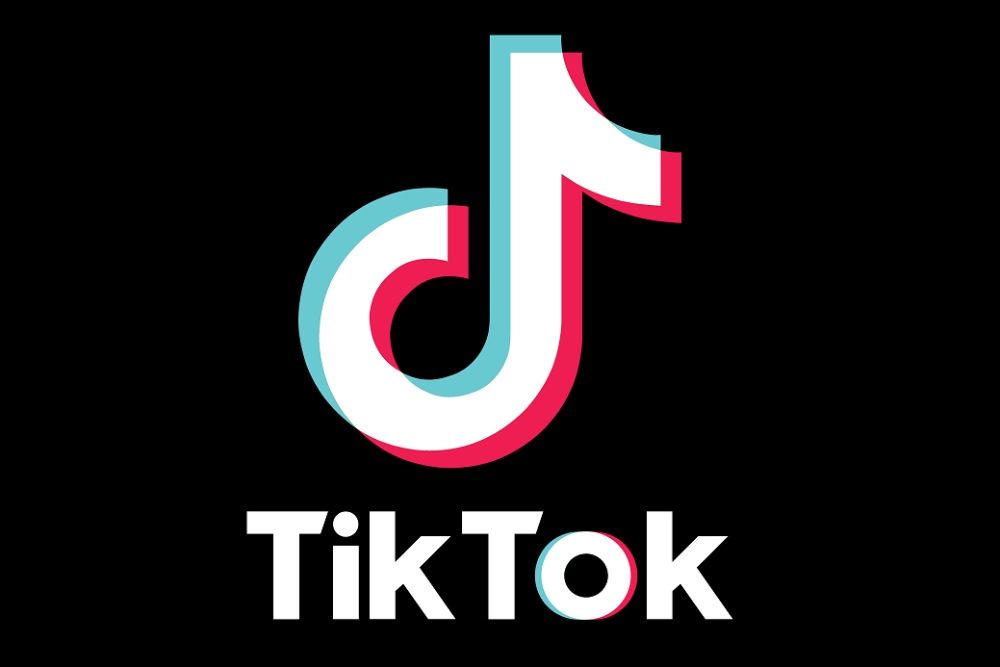
TikTok, a rapidly growing new social media app with over 1 billion monthly active users, is known for its short-form video content. It allows users to create and share 15 to 60-second videos set to music or sound bites. TikTok’s algorithm effectively promotes viral content, making it a hotbed for trends and challenges. It’s viral among younger audiences, driving immense engagement and creativity.
Pros:
- High potential for virality
- Easy to create and share content
- Strong community engagement
Cons:
- Privacy and security concerns
- Content moderation issues
- Highly competitive
4. Twitter
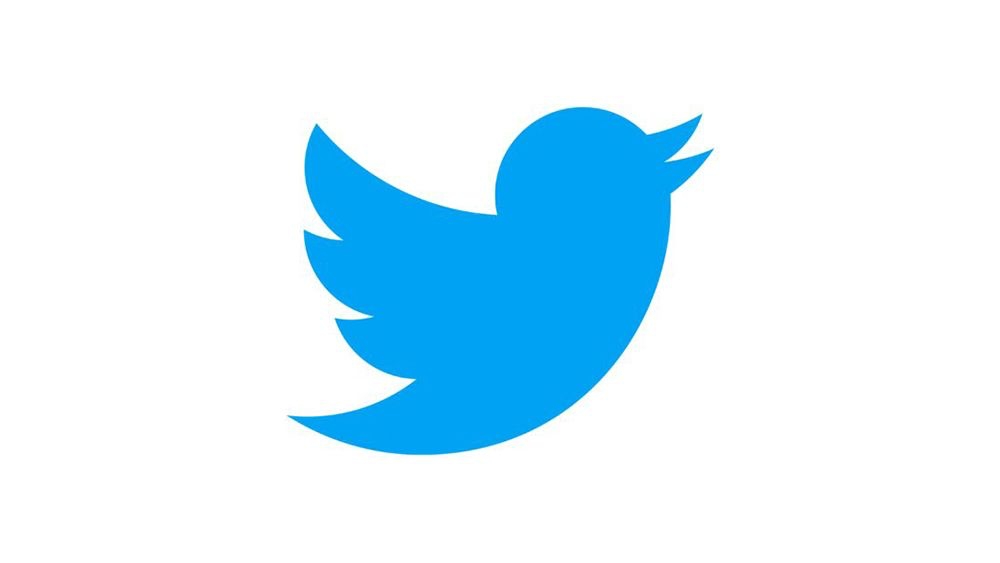
Twitter, with over 330 million monthly active users, is a microblogging platform where users post short updates called tweets. It’s a key platform for real-time news, trends, and public discourse. Twitter’s open nature and hashtag functionality make it a powerful tool for networking, customer service, and brand engagement.
Pros:
- Real-time updates and engagement
- Effective for networking and discussions
- Strong news dissemination
Cons:
- Limited character count
- High presence of trolls and negativity
- Content can be easily lost in the feed
5. LinkedIn
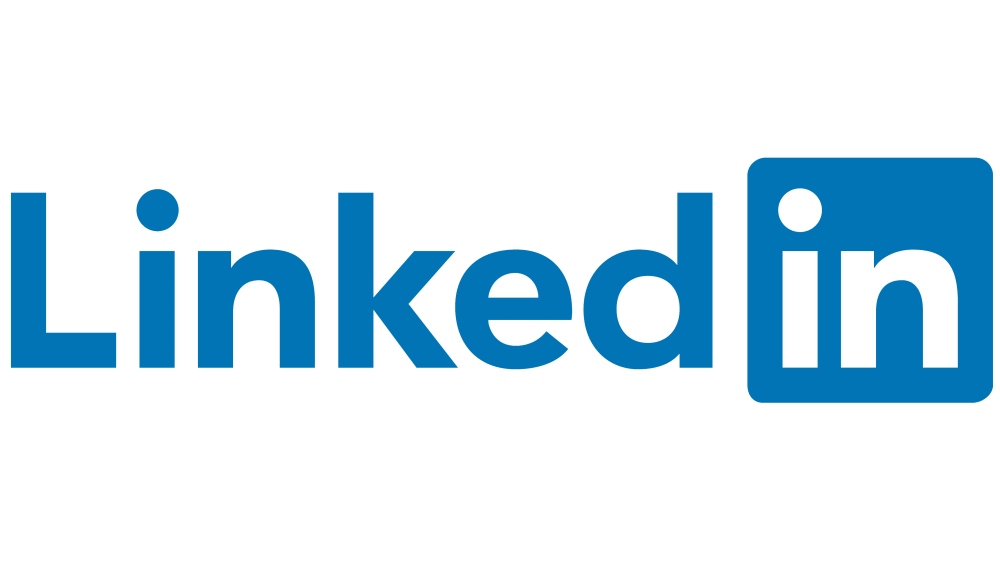
LinkedIn, the world’s largest professional network with over 740 million members, is essential for business networking, job searching, and industry discussions. It offers features like profiles, connections, groups, and a robust job board. LinkedIn’s content platform allows professionals to share insights, articles, and career updates, making it a vital tool for personal branding and B2B marketing.
Pros:
- Professional networking opportunities
- Job search and recruitment tools
- Industry-specific content
Cons:
- Can feel too formal for some users
- Paid features can be expensive
- Content visibility can be limited without engagement
6. Snapchat
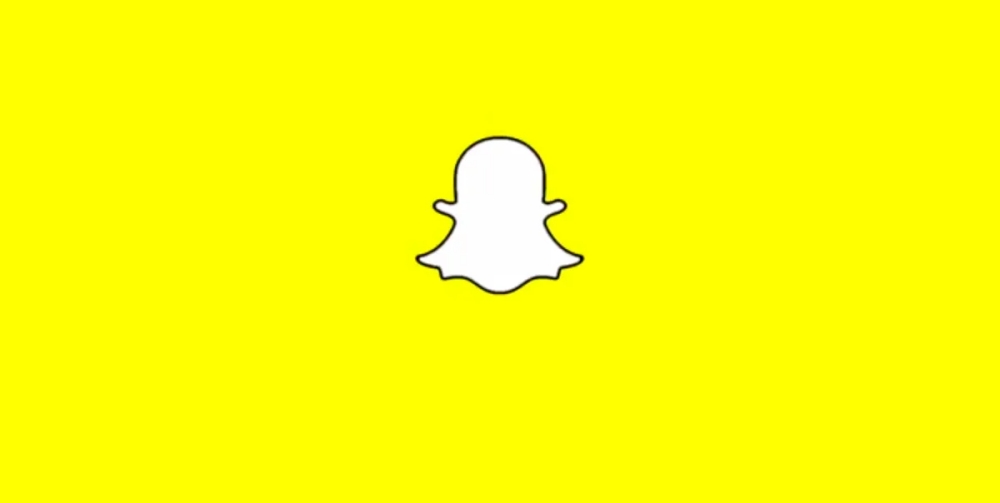
Snapchat, with over 500 million monthly active users, is known for its ephemeral messaging and multimedia sharing. It’s popular among younger users for its innovative features like Stories, filters, and augmented reality (AR) effects. Snapchat also offers Discover for brand content and Spotlight for user-generated content, fostering a creative and interactive community.
Pros:
- Innovative AR features
- Strong engagement with younger demographics
- Unique content format
Cons:
- Limited content permanence
- Smaller audience compared to some competitors
- Monetization can be challenging
7. Pinterest
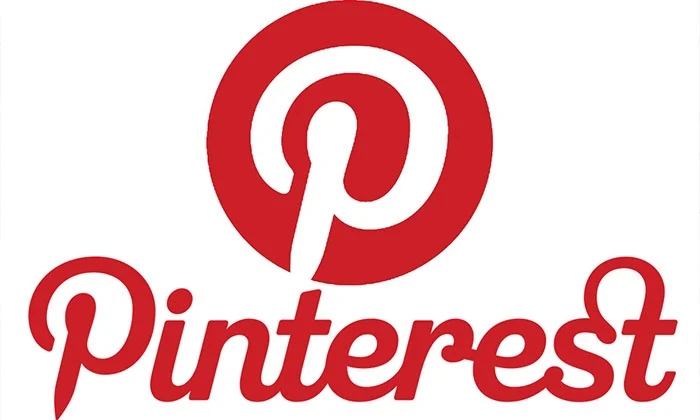
Pinterest is a visual discovery and bookmarking platform with over 400 million monthly active users. It allows users to find and save ideas for various interests, from recipes to home decor. Pinterest is highly effective for driving traffic to websites, making it valuable for bloggers, e-commerce businesses, and content creators.
Pros:
- Strong visual appeal
- Effective for driving website traffic
- Long content lifespan
Cons:
- Not ideal for real-time engagement
- Audience skewed towards certain demographics
- Can be time-consuming to manage
8. Reddit
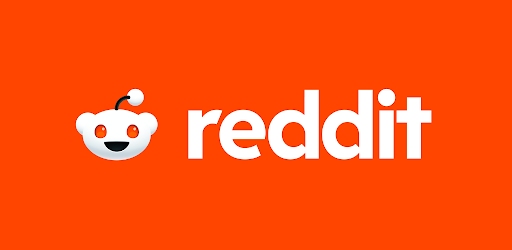
Reddit, known as the “front page of the internet,” has over 430 million monthly active users. It’s a community-driven platform where users engage in discussions across thousands of niche forums called subreddits. Reddit’s deep engagement and anonymity encourage open and honest discussions, making it a valuable platform for community building and market research.
Pros:
- High engagement in niche communities
- A diverse range of topics
- Anonymity can encourage open discussions
Cons:
- Can be challenging to navigate for new users
- Potential for negative or toxic interactions
- Moderation varies by subreddit
9. YouTube
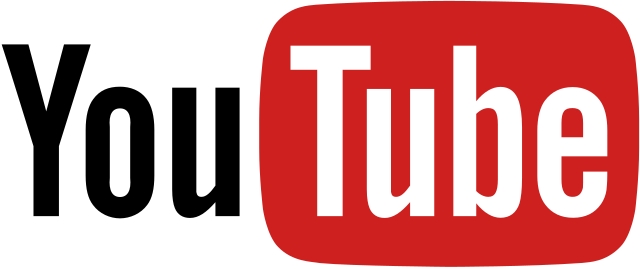
YouTube, with over 2 billion logged-in monthly users, is the leading platform for video content. It allows users to upload, share, and view videos, ranging from vlogs to educational content. YouTube’s robust monetization options and search engine integration make it a critical platform for content creators, influencers, and marketers.
Pros:
- Massive user base
- High potential for monetization
- Strong search engine integration
Cons:
- Content creation can be resource-intensive
- Strict content policies
- High competition for visibility
10. Clubhouse
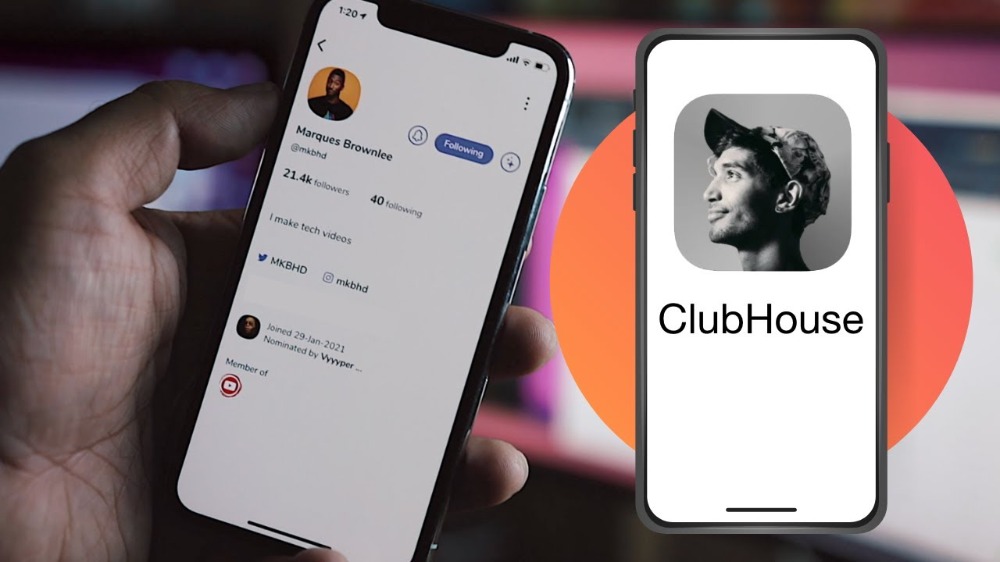
Clubhouse is an audio-based social networking app where users can join rooms to participate in live, voice-only discussions. Gaining popularity for its real-time, interactive format, Clubhouse fosters intimate and exclusive conversations on a variety of topics, attracting professionals and thought leaders worldwide.
Pros:
- Requires active participation
- Real-time, interactive discussions
- Networking opportunities
Cons:
- Exclusive and intimate feel
- Content is ephemeral and not recorded
- Limited accessibility (initially invite-only)
How Can ZEGOCLOUD Help for Social Media App Development
In the ever-evolving world of social media, staying ahead requires not only innovative features but also seamless and real-time communication capabilities. This is where ZEGOCLOUD comes in. As a leading provider of real-time communication (RTC) solutions, ZEGOCLOUD empowers social media apps with high-quality video calls and audio calls, live streaming, instant messaging, and interactive features, enhancing user engagement and creating more immersive social experiences.
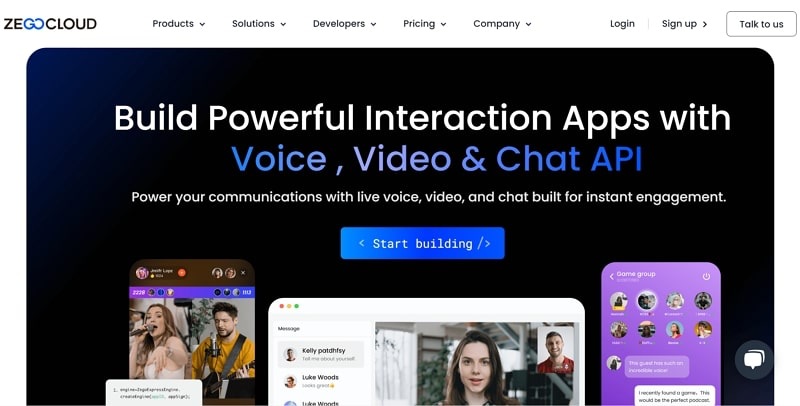
What ZEGOCLOUD Can Do for Your Social Media App:
1. Real-Time Video and Audio Calls
ZEGOCLOUD provides HD video and audio call capabilities, allowing users to connect with friends, family, and followers in real time. This feature is essential for creating a more personal and interactive user experience.
2. Live Streaming
Enable users to broadcast live events, share real-time updates, and interact with their audience through ZEGOCLOUD’s robust live streaming services. This feature is perfect for influencers, content creators, and brands looking to engage their followers.
3. Instant Messaging
ZEGOCLOUD offers reliable and secure instant messaging, supporting text, images, voice messages, and videos. This functionality keeps users engaged and fosters continuous interaction within the app.
4. Interactive Features
Enhance user interaction with features like interactive whiteboards, screen sharing, and co-browsing. These tools are ideal for collaborative activities, virtual events, and educational content.
5. High Scalability and Security
ZEGOCLOUD ensures your social media app can handle a large number of concurrent users with low latency and high reliability. Additionally, robust security measures, including end-to-end encryption, protect user data and privacy.
Integrating ZEGOCLOUD into your social media app development can significantly enhance its functionality and user engagement. By leveraging ZEGOCLOUD’s advanced RTC capabilities, you can offer users a richer, more interactive experience, setting your app apart in the competitive social media landscape.
Conclusion
As we navigate the digital age, staying connected has never been more vital. The top 10 most popular social media apps and sites provide a variety of ways to interact, share, and engage with a global audience. From innovative features to expansive user bases, these platforms continue to shape our online interactions and redefine how we communicate. Keep an eye on these leaders as they drive the future of social media.
Read more:
FAQ
Q1: How do social media apps make money?
Social media apps primarily make money through advertising, sponsored content, and premium features. They offer businesses the ability to target specific audiences with ads, charge users for premium subscriptions, and facilitate in-app purchases. Additionally, some platforms earn revenue through partnerships and affiliate marketing.
Q2: What features should a social media app have to succeed?
A successful social media app should have a user-friendly design, robust privacy and security measures, real-time communication features (such as messaging and video calls), content-sharing capabilities, personalized content feeds, and engagement tools like likes, comments, and shares. Integration with other platforms and continuous updates to keep up with trends are also essential.
Q3: What are the benefits of using social media apps for businesses?
Social media apps offer businesses numerous benefits, including increased brand awareness, direct engagement with customers, targeted advertising, and valuable insights through analytics. They provide a platform for customer service, allow for real-time feedback, and help build a loyal community around the brand. Additionally, social media can drive traffic to business websites and increase sales through integrated e-commerce features.
Let’s Build APP Together
Start building with real-time video, voice & chat SDK for apps today!










